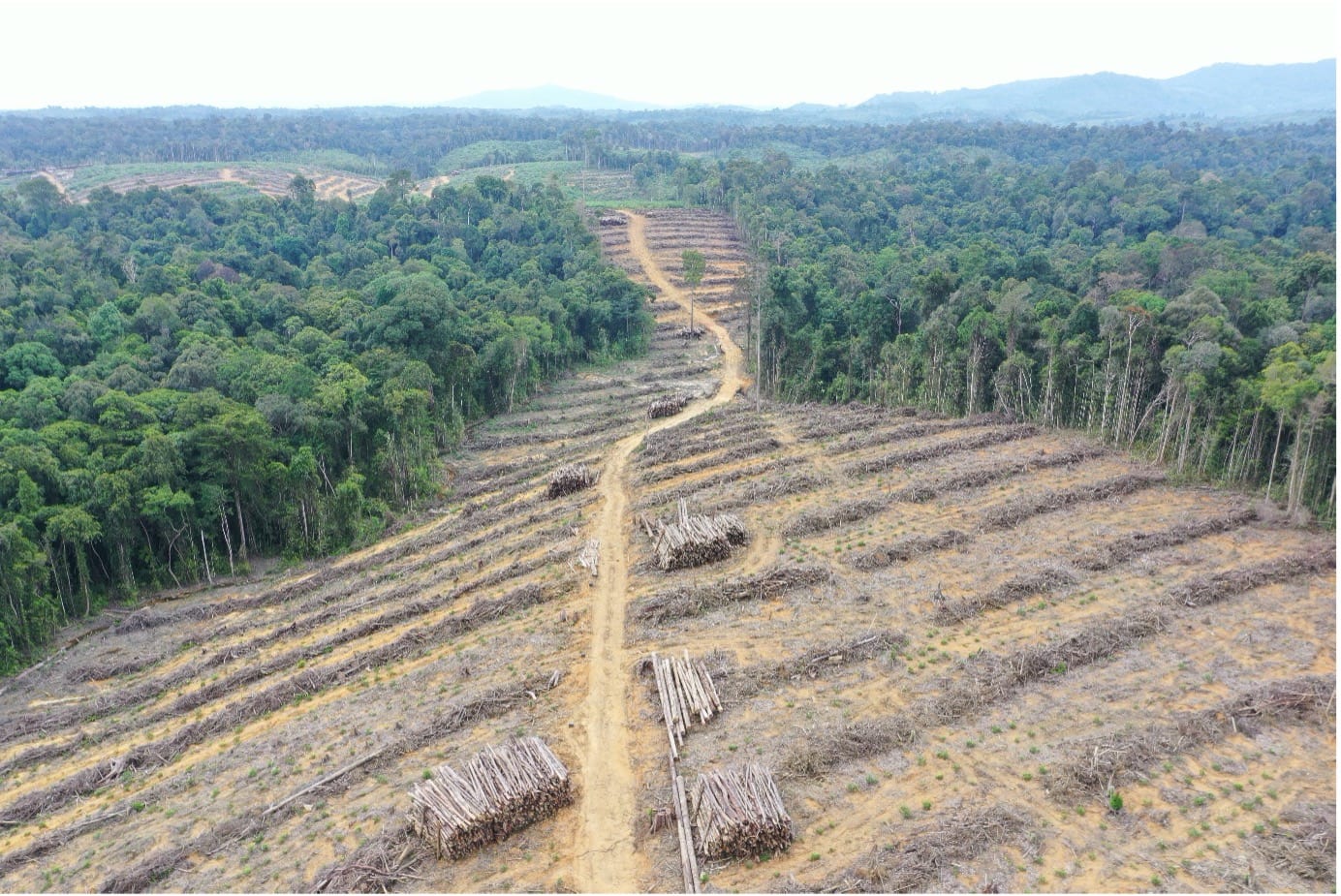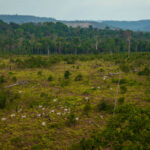Alas Kusuma Group second largest deforester in Indonesia’s pulp and paper sector

The company group Alas Kusuma was the second largest deforester in Indonesia’s pulp and paper sector over 2020, as its subsidiary PT Mayawana Persada cleared 2,800 hectares of forests. The clear-felling was mainly in orangutan habitat and it is ongoing in 2021. Alas Kusuma has logging, industrial tree and oil palm concessions. Aidenvironment calls upon buying companies with no-deforestation commitments to use their leverage and stop the deforestation by Alas Kusuma.
Alas Kusuma’s PT Mayawana Persada operates an industrial tree concession of 137,000 hectares in the Ketapang and North Kayong districts of West Kalimantan. In 2016, an expert group of scientists found that most of the area is orangutan habitat. Between 2016 and March 2021, the company cleared 6,000 hectares of forests, of which a small part was caused by third-party bauxite mining. The latest (September 2020) Indonesian government-instigated audit document on sustainable management by PT Mayawana Persada brings about very little information on any conservation efforts. Already in 2014, the NGO Greenomics detailed PT Mayawana Persada’s lack of conserving High Conservation Value areas.
Alas Kusuma does not have a website, and it does not have a No Deforestation, No Peat, No Exploitation (NDPE) policy. In the latest SPOTT transparency assessment, Alas Kusuma was awarded a score in the very low ranges, just 10.6%.
The company is best-known from its plywood business. It has 455,000 hectares of logging concessions in West and Central Kalimantan. Both of the logging companies PT Sari Bumi Kusuma and PT Suka Jaya Makmur hold Forest Stewardship Council (FSC) certificates. Indonesian trade data over the first nine months of 2020 show that Alas Kusuma exported most of its plywood to the Japanese companies Sumitomo Forestry (10,500 tonnes) and ITOCHU Corporation (9,200 tonnes).
Alas Kusuma has an estimated oil palm planted area of 12,400 hectares. Its produce is sold to third-party mills. The two plantation companies, PT Sawit Jaya Makmur and PT Kusuma Alam Sari, are located adjacently to each other in Kubu Raya district of West Kalimantan. In 2015, Greenpeace highlighted deforestation and fires inside PT Kusuma Alam Sari’s concession. Aidenvironment and Mighty Earth detected 129 ha forest loss in May-August 2018. Smaller patches of deforestation continued to be detected by Mighty Earth on this concession in 2020.

Various companies with no-deforestation commitments have trade relations with Alas Kusuma, yet so far there has been no engagement to stop the deforestation by PT Mayawana Persada:
- While deforestation by PT Mayawana Persada was ongoing, APRIL (Royal Golden Eagle group) breached its no-deforestation commitment by buying pulpwood in 2019 and 2020 from the company PT Mayangkara Tanaman Industri. Since 2009, this company was 50%-owned by Alas Kusuma. Alas Kusuma sold most of its shares late 2020 to the other owner, Sumitomo Forestry. Alas Kusuma’s stake in this company is now less than 10%.
- The Japanese ITOCHU Corporation has various policies and initiatives on sustainable procurement. It is a main palm oil refiner/trader and a customer of Alas Kusuma’s plywood. ITOCHU has not (yet) reached out to Alas Kusuma over PT Mayawana Persada’s deforestation.
- The harvest from Alas Kusuma’s oil palm plantations may very well enter the supply chain of Indonesia’s main palm oil refiners. Presently it is not known which palm oil mill(s) buy the produce of Alas Kusuma.
The findings on Alas Kusuma show the need for main companies to adopt cross-commodity NDPE policies, as business partners in one sector may continue their deforestation in another sector.
For more information, please contact Chris Wiggs

